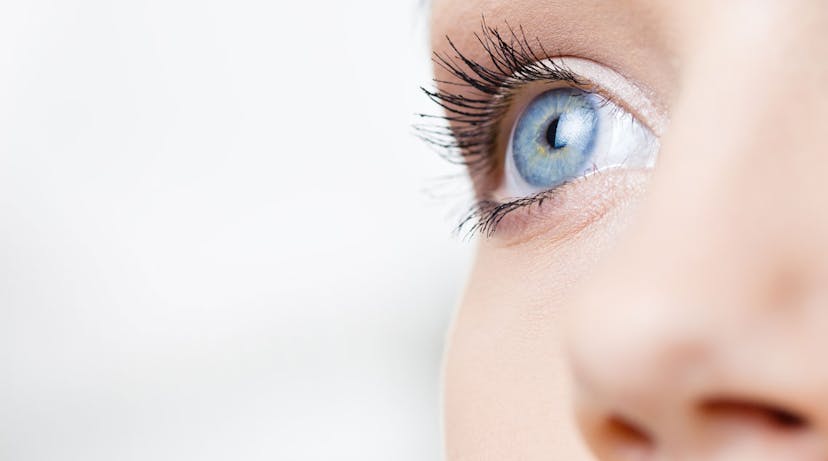
How Long Does A Chalazion Last?
Understanding Chalazions
A relatively small oil gland next to the eyelashes can get clogged and swelled, leading to a frequent condition on the eyelids known as a chalazion. Although chalazions are typically harmless and go away by themselves, many people are curious as to the amount of time they will last. In this article, we'll look at how long a chalazion often lasts, which factors determine how soon a chalazion heals, and when it might be important to consult an eyelid specialist.
Click Here To Download Our Chalazion Guide Sheet!
What Is A Chalazion?
A chalazion, also known as a meibomian gland blockage, is a non-infectious, painless lump that forms on the eyelid. The lubricating gland for the eye produces oil regularly, but when it becomes blocked, the oil is stored, which leads to swelling and the growth of a chalazion.

Duration Of A Chalazion:
Although the span of a chalazion may differ from the individual, it usually goes away between a few weeks to a few months. A chalazion typically lasts between two and eight weeks in duration. However, it's crucial to remember that several things might have an impact on how quickly a person heals.
Factors Affecting Healing Time:
Size Of The Chalazion
In comparison with small chalazions, bigger ones might require longer to heal. The amount of swelling, and how quickly the gland resumes its regular function, can be affected by the size of the hump.
Early Intervention
Early intervention may speed up the healing process. The clogged gland can be opened and encouraged to drain with the help of warm compresses, gentle eyelid massage treatments, and good eyelid hygiene, potentially shortening the duration of the chalazion.
Individual Healing Reaction
Each individual's body reacts to a chalazion differently. While some people may recover in one week, untreated chalazions can take between 4-6 weeks to heal. However, a person's general health, immunological response, and capacity for self-healing can all influence how long it takes a chalazion to heal.
Recurrence
Despite early therapy, a chalazion can sometimes reoccur or persist. If this occurs, it's crucial to speak with a qualified eye care specialist for additional assessments and treatment. Mr Radwan Almousa and Ms Tina Khanam, members of our highly qualified team of eyelid specialists at My-iClinic, can monitor, treat and remove chalazions, cysts, and styes.
When To Seek Medical Attention
If a chalazion, does not go away after a few weeks with home treatment such as warm compresses, it may be time to consult an eye specialist. Typically, most chalazia resolve within a month, but if it persists for longer, grows larger, or causes significant discomfort, a specialist should evaluate it. Delaying treatment could increase the risk of infection or vision problems, so it's advisable to seek medical advice if the condition hasn't improved after 2-3 weeks of at-home care.
| Time Frame | Description of Urgency |
|---|---|
| 1-2 Days | No immediate need to see a specialist. Use warm compresses and maintain good eye hygiene. |
| 1 Week | Monitor the chalazion's size and discomfort. Continue home treatments but no urgent need for professional help yet. |
| 2-3 Weeks | If the chalazion has not reduced in size or has worsened, consider scheduling an appointment with an eye specialist. |
| 1 Month | If the chalazion persists or becomes painful, it is recommended to see an eye specialist as soon as possible. |
| Over 1 Month | Urgent need to consult an eye specialist. Professional evaluation is necessary for possible intervention or treatment. |
Consistent Symptoms
It is advised to seek medical attention if the chalazion does not improve after a few weeks or if it worsens over time.
Vision Impairment
It's critically important to contact an eye doctor right away if the chalazion impairs your eyesight or produces substantial discomfort.
Recurrent Chalazions
If you have a previous history of getting chalazions frequently or repeatedly, it may be a sign that you have a medical condition that needs to be dealt with.
Signs Of Infection
An infection may be present if the chalazion turns red, swells, or hurts, and there is pus or discharge; in this case, prompt medical intervention is required.
Chalazion Healing Time Chart

Chalazions typically go away on themselves within just a few weeks to a few months. Individualised healing periods, however, can differ depending on the chalazion size, the timing of medical treatment, the patient's response to the healing process, and the likelihood of a recurrence. However, if the chalazion persists, worsens, affects vision, or displays signs of infection, it is crucial to seek medical assistance. Home remedies and cautious management are typically helpful in treating chalazion but It is possible to assure accurate diagnosis, treatment, and guidance during the healing process by consulting an eye care specialist.
Find out more by Speaking to our team









